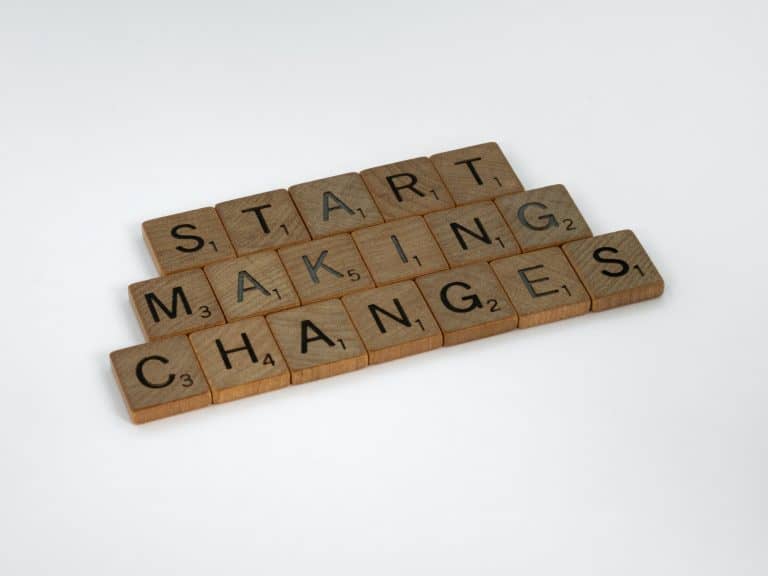I have money to invest where should I put it? (A beginners guide)
I have money to invest where should I put it?
This is a question that many people ask themselves. There are many different options for investment, and they all have their pros and cons.
Investing can be a great way to earn more money by investing your money into assets like stocks, real estate, and bonds. The keyword here is investing: you need to be willing to put some time and effort into research on what are the sound principles of building wealth and especially your self-education on managing and growing your wealth.
When investing, there are a lot of things to think about. You need to ask yourself how much risk you’re comfortable with and what your goals are.
How much time and effort do you want to put in actively researching the latest thing or being more passive in your investment strategy?
Investing can be very profitable over the long term, but it is important to understand the basics before putting your hard-earned money into any investments whether stocks, property, or others.
In this blog post, we will discuss some of the best places to invest your money and what you should consider before investing.
1. Start by investing in yourself
Find the top 3 books and podcasts on money management, investing, and growing your wealth. By reading these books and articles on investing you will give yourself a much better chance of making good decisions with your money.
Once you have a good understanding of the basics, you can start planning out where you want your money to go and what you want it to achieve for you in the short and long term.
Remember, there is no one-size-fits-all answer when it comes to money and investing. Everyone’s situation is different, so make sure to do your own research and find an investment strategy that works for you.

2. What are your goals for investing?
Investing is a great way to grow your wealth but you need to have a reason for it to prevent you from being distracted by the latest shiny thing.
These are some goals you might want to achieve when investing your money. It is important to understand these goals if investing is what you really want to pursue as a financial strategy because it will help you figure out how much time and effort investing requires.
– investing in your children’s future
– investing for retirement
– investing to buy a house.
It is important to note that investing does not yield quick results from one day to another. If you want your money back after a week or two, investing in the stock market or real estate is probably the wrong way for you! It’s about building wealth over time with smart investments so it can be a long-term strategy.
3. When do you think you will need the money?
This question is something everyone investing needs to ask themselves before investing their money.
If you need the money in a short time, it probably isn’t smart for your financial future to make investments in the stock market or property because they can go down as well as up and if you don’t have the time for them to recover you may have to sell at a loss.
If you think investing is something for the future and don’t need your money anytime soon, investing can help grow it faster than just letting it in savings accounts.
Investing generally yields better returns over the long term so you have to factor this into when you want access to the money and how much volatility you can handle along the way.
4. How much money do you want to invest and how often do you want to invest it?
– investing a lump sum of money
If you have a large amount of money to invest, you might want to consider investing it all at once. This is called investing in a lump sum. It’s important to remember that when investing in a lump sum, your investment will be subject to more risk because you’re taking on more risk at once.
– investing regularly
In this investing strategy, you invest smaller amounts regularly. This is often referred to as “dollar-cost averaging.” It’s important to remember that when drip-feeding money into an investment over a long period there will be less risk because you’re investing a smaller amount of money each time.

5. Where will the money come from?
The first thing you need for investing is some kind of capital, which can be saved up from your income or acquired through other means such as inheritance or winning the lottery!
If you have a steady income and are disciplined about saving, investing can be as easy as setting up an automatic deduction from your bank account to a savings account earmarked for investments.
6. What are the pros and cons of investing in stocks vs real estate?
One of the biggest pros to investing in stocks is that you can invest a relatively small sum of money and still have exposure to the world’s great companies.
With real estate investing, you typically need a larger sum of money to buy your first property.
The main temporary downside to investing in the stock market is that you are exposed to volativity i.e. the ups and downs of the market and how you might react to them.
When your investment declines, there may be a substantial paper loss until it recovers or you panic and sell at a loss, which is a bad idea.
Real estate investing carries many of the same risks as stocks, but real estate typically has smaller price fluctuations than stocks and can offer some tax benefits for capital gains and depreciation, but governments keep changing these rules so you will need to check at the time.
When making the decision between stocks and real estate, it is important to weigh the risks and rewards associated with each option and decide what is best for your situation.
7. How do I get started with investing?
Once you have decided to invest, your next step is to determine how much money you want to start investing with.
Consider investing a small sum of money to start with each month into an index fund that tracks the market as a whole or is often referred to as passive or index investing.
Real estate investing is a more complicated and expensive endeavor, especially if you want to invest in rental properties then you are dealing with tenants and toilets at all hours of the day and night.

8. What is a diversified portfolio and how does it work?
A diversified portfolio is a combination of investments that will help you capture the entire return of the market.
It will also help you ride out any storms in particular areas as you will not be too concentrated in any one thing.
This may include investing in different types of stocks, bonds, and cash depending on what your goals are.
Summary: I have money to invest where should I put it?
When it comes to investing, there are a number of things to consider to make the best decisions for you.
invest in yourself to start with by improving your knowledge and understanding of what’s out there and what the key principles of investing are.
Think about what you want to achieve with your investments, and then research the available options.
Some of the key factors include understanding your tolerance for risk and volatility, deciding what you want to achieve with your investment, when you want access ott the money and how much money you want to start investing with.
Investing for beginners can seem daunting, but it doesn’t have to be.
Once you have answered these questions, you can start your investing journey to a financially happy future.
Anyway those are my thoughts on I have money to invest where should I put it.
Thanks for reading!
Life and Financial Planning
Get ahead in money and life
Life not going quite as you expected?
Would having a Life and financial plan in place help bring clarity on what’s most important to you and how to achieve it?
- Life, job and finances not heading in the direction you hoped?
- One or two months away from financial disaster?
- Not enough time or money to achieve what’s most important to you?
- No idea how to plan, save and invest to lead a great life?
- Frustrated you cant create your own job?
What’s likely to be the outcome if you don’t make some serious plans asap?
More of the same?
Without making some clear plans you are at real risk of repeating what has gone before and or falling into someone else’s plan.
And guess what they have planned for you?
Not much!
Life and financial planning will give you the support, guidance, and accountability you need to succeed with money and life, building wealth in every area of your life.
- Get your life and money organised
- Build your savings cushion to create more life options.
- Help you figure out what’s most important to you and how much money is enough.
- Help you understand and build wealth so you don’t have to worry about money anymore.
- Support, guide and inspire you to create your own business or side hustle.
Start building your life and money confidence now because waiting will only make it more expensive and painful to achieve later.
Plan, build and enjoy your life and money.
Taking you from life and financial crisis to happiness.
Contact us here for a chat about building your life and money confidence.







